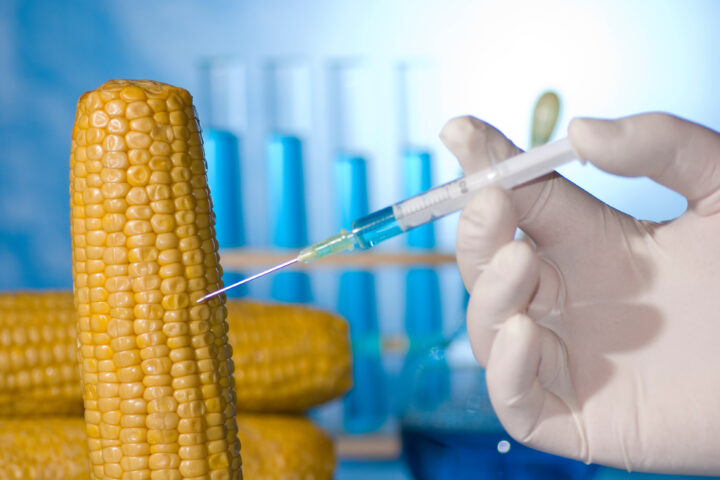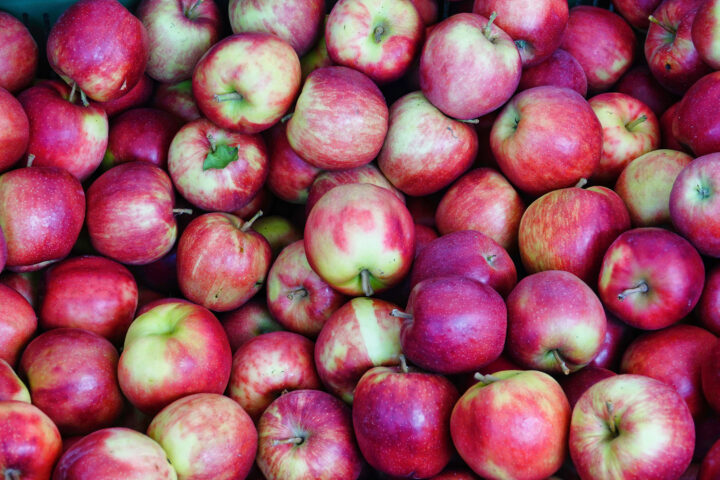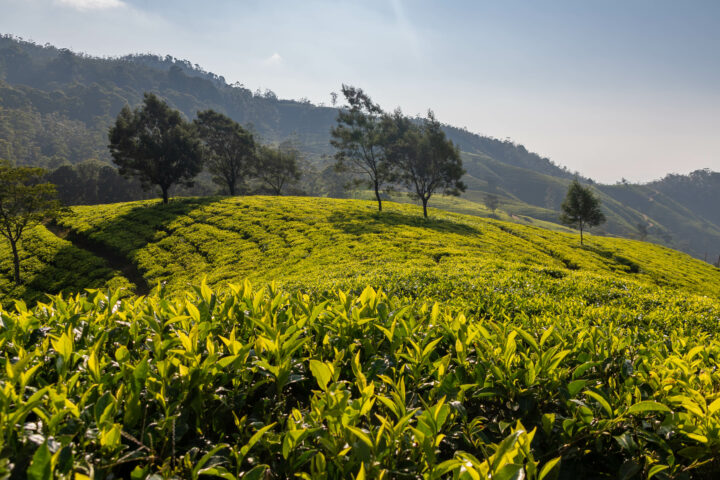«Ecological methods alone won’t cut it»
How does the BASF chemicals and agricultural solutions group square the circle between climate protection and profit maximization? Board member Saori Dubourg on small farmers in developing countries, gene technology and pesticides.
Monday, January 31, 2022
DIE ZEIT: Ms. Dubourg, you once said that what counts is honesty. What would you say is a painful realization when you’re in charge of sustainability in a chemical company?
Saori Dubourg: That transitioning to sustainability is a greater challenge than many people might think. We want to be climate neutral by 2050. That means shifting our energy supply to renewable sources and realigning our portfolios. Just as everyone in politics, business and society is doing now, we have to make the effort.
ZEIT: BASF makes money making pesticides that harm nature. The EU Commission is calling for pesticide use to be cut in half by 2030. What does that mean for your company?
Dubourg: I see the challenge in broader terms: 40 percent of farmland have been lost to drought disasters and floods in recent years, and by 2050 we will have to feed an additional three billion people worldwide. This means farmers have to stay productive and competitive while protecting the environment and mitigating climate change. There will be a need for biological crop protection solutions, but also chemical solutions with an even lower environmental impact. And there will be a need for a lot more innovation, too.
ZEIT: Could you be more specific?
Dubourg: We need to intelligently link new approaches in the areas of seeds, breeding, crop protection and digitization. For instance, weather data systems enable us to pinpoint with ever-greater precision where individual fields are too dry, where rainfall is running off too quickly – and what that means for the soil. This is just one way to make sure only as much crop protection is applied as is actually necessary.
ZEIT: So how will BASF be making money in the future?
Dubourg: By linking the various system solutions and the know-how that goes with them. Farmers can count on a comprehensive bundle of digital data, crop protection products, improved seeds and pragmatic expertise, all tailored to a specific field.
ZEIT: Many farmers fear this all-encompassing supply approach will make them even more dependent on Big Agro – BASF, Bayer, Syngenta and Corteva. Do they have a case?
Dubourg: Progress today comes from farmers and companies like BASF sharing data – data about the climate, the weather, the soil, the products – and then coming up with new solutions together. In a cooperative model like this, you for instance have Bosch contributing sensor technology, robotics and camera technology, while BASF brings the data algorithms to the table via digital platforms. New crop sprayers can then precisely measure how much product should be applied or whether any should be sprayed at all. In this kind of cooperation, data ownership is a key aspect that has to be clearly defined at the outset.
ZEIT: So who owns what?
Dubourg: BASF provides the data that identifies whether you’re dealing with a crop, wild herbs or weeds, and the algorithms for treatment. The farmer provides data from the – publicly accessible – field database. Any personal and farm-specific information will remain in the farmer’s possession.
ZEIT: One of the unpleasant truths about BASF is that while you are trying to reduce pesticides in Europe through the use of high-tech, you are taking products banned here because they are toxic and selling them to many small farmers in developing countries. How does that jibe with your claim to sustainability?
Dubourg: Farmers in tropical environments require different crop protection solutions than in Europe, so we adapt our range accordingly. All our products are also approved in at least one OECD country.
ZEIT: Poison is still poison, however. In poorer countries, smallholders can’t always read the instructions for using pesticides or they don’t have protective clothing. Shouldn’t such risks keep you from marketing your products there?
Dubourg: We provide extensive and intensive training for farmers, but our duty of care does not go so far as to control individual behavior. Besides, there are ultra-modern farming operations even in poorer countries, especially in large agricultural economies like Brazil. You’d be surprised how big and sophisticated those ‘small farms’ actually are. What is true is that we invest a lot of time and money in training and education.
ZEIT: Still, small farmers are the ones feeding the majority of the people on the planet. Wouldn’t they be better off applying ecological farming methods rather than expensive chemicals and digitalization?
Dubourg: Ecological methods alone won't cut it – even less so if eating habits change. In India, a cab driver once proudly told me, ‘My son is now part of the middle class, he can finally eat chicken once a week.’ When more meat is on the table, the pressure on land use automatically increases. And ecological farming requires considerably more land than conventional farming to achieve the same yields.
ZEIT: But that’s only true in northern areas. And there’s the fact that more environmentally responsible farming has been much less researched. If more money went into agroforestry, for example, where food crops, shrubs and trees yield produce throughout the year, more organic food could be grown, too.
Dubourg: I see the future in combining organic solutions and conventional agriculture. That’s why we also support a number of organic farming projects.
ZEIT: There is one other innovation area that is currently the subject of controversy in Europe: The EU Commission, companies like yours and major scientific organizations want to facilitate approval for gene editing technology like Crispr/Cas9, and amend genetic engineering law accordingly. Organic farmers, many consumers and also the food trade are against this. Why are you so keen to push through this new technology?
Dubourg: Because genome editing makes it possible to protect crops more effectively against water shortages, heat, drought and floods. Companies have long had plants in their research pipeline that are more robust against weeds, for instance, and there’s more to come.
ZEIT: However, some of the changes caused by these new methods can no longer be detected in the genome afterwards. How can organic farmers then prove they aren’t actually using genetic engineering?
Dubourg: That is why ensuring the necessary transparency is key.
ZEIT: Another major topic is climate neutrality. BASF wants to become a CO2-neutral company by 2050. How do you see that happening?
Dubourg: We are looking at our entire value chain to see where we can save CO2 emissions. For example, there are enzymes that can be added to cattle feed, so they emit less methane.
ZEIT: ... the greenhouse gas that, if you look at it over a period of 20 years, has about 81 times the impact of CO2, and is one of the major climate problems linked to farming...
Dubourg: There are now many other ways of reducing carbon along the value chain. We have built up a huge database to get a better handle on this. It shows exactly what the carbon emissions are for each product. In 1990, BASF had around 40 million metric tons of CO2 emissions. Today, that figure has practically cut in half, down to 22 million metric tons. And we are on track to achieving net zero by 2050.
ZEIT: How is that supposed to happen? You once said yourself that there is no such thing as CO2-free chemical plant.
Dubourg: We have to convert our plants to renewable energies. This means increasing our investments in this area and at the same time trying to manufacture our products with zero emissions. Our goal is net zero. But we can’t do it alone. BASF doesn’t build renewable energy systems and networks. Politicians need to step up here, and we also need a greater willingness to compromise on the part of the population. There is still very much resistance to new power grids and wind farms – and at the same time people are demanding that more be done for climate protection!
ZEIT: Do we need higher carbon pricing?
Dubourg: We need to price carbon at a higher level, but it is important that this be done not only in Europe, but worldwide. After all, the USA and China have also publicly committed themselves to doing it.
ZEIT: Who are the real drivers: is it Fridays For Future or is it the investors and financial markets?
Dubourg: Both are an expression of a social shift. Capital markets have realized the value of the environment and to me Fridays For Future is not just any NGO, but a movement of the next generation. These are our children who are clearly voicing the demand that we leave them a world that is in no worse shape than we found it.
First publication
This interview was first published on "Zeit Online" on January 4, 2022 and in the print edition of "Die Zeit" on January 5, 2022. The interview was conducted by Christiane Grefe and Petra Pinzier.
Related articles

Science resists ban on GMO crops
The Supreme Court in the Philippines wants to stop the cultivation of genetically modified plants Golden Rice and Bt aubergine (Bacillus thuringiensis). This is anything but well received by the government and the scientific community: The ban could jeopardise the country's food security.

Enabling what is inevitable
The opponents of progress are once again in the starting blocks. In mid-April, critics of genetic engineering announced a popular initiative aimed at making any relaxation of the existing moratorium on genetic engineering impossible. The exact wording is not yet known, but the statements made by the exponents make it clear that the total blockade on modern plant breeding is to be enshrined in the constitution.

Where the focus lies in apple breeding
The new head of Agroscope's fruit breeding research group is Andrea Patocchi. In an interview with the trade journal Obst + Wein, he explains where the focus of apple breeding lies today.

Chinese robot picks tea
There is a shortage of tea pickers in China. A robot developed by a researcher is set to remedy the situation and take over the work in future. Thanks to artificial intelligence, the machine can even recognise the shoots of the tea plant. The first harvesting robots are also already being developed in Switzerland.

